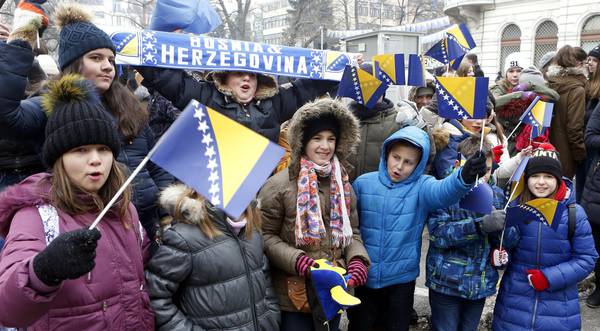(ANSA) - SARAJEVO, MAR 1 - You can see thousands of national
flags on public buildings and along the main avenues of Sarajevo
today because Bosnia-Herzegovina is celebrating 27 years of
independence. An achievement which cost a lot in terms of
destruction and human lives. But the celebration always occurs
in the midst of ethnic and political divisions. Today is a
public holiday in the Bh Federation (with a Bosniak Muslim and
Croat majority), the anniversary is not celebrated at all in the
Republika Srpska (Rs, the other entity, Serbian majority). March
1 marks the anniversary of the referendum held between February
29 and March 1, 1992, supported and financed by the European
Union, in which 64% of the citizens, more than 2m voters out of
4.2m residents, voted in favor of independence.
According to Bosnian Serb leader Milorad Dodik, current
president of the Bosnian tripartite presidency, today is a
''private party of Bosniaks (Bosnian Muslims) that will never be
celebrated in the Rs'', being a symbol of the denial of rights
and suffering of the Serbs. ''It is not my party'', said Dodik,
underlining that ''there is no law on public holidays approved
by the three peoples of the entity'' (Orthodox Serbs, Catholic
Croats, Muslim Bosniaks, ed).
The referendum which was held 27 years ago was boycotted by the
nationalists Serbs who had already proclaimed the Serbian
Republic in Bosnia in the Sarajevo Parliament in January. One
month after the referendum, the federal army (with Serbian
majority) attacked Sarajevo, starting a siege of the city which
lasted 3,5 yrs. At the end of the conflict, on February 28,
1995, the Bosnian parliament declared March 1 the Independence
Day the country's National Day. (ANSA).
© Copyright ANSA - All rights reserved














